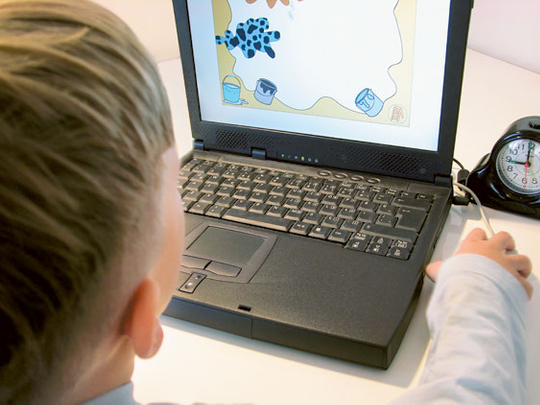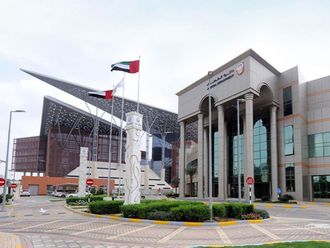
Abu Dhabi: UAE youngsters using the internet make themselves vulnerable to predators like cyber stalkers, child pornographers and criminals with a paedophilia background, experts warn parents, blaming them for inadequate parental control.
“Parents must understand that the moral boundaries of their homes are jeopardised the second an internet cable enters their house,” said Major Faisal Al Shamari of the Higher Committee for the Protection of Children, speaking at a Working Group of Specialists Meeting on IT Crime.
In a recent survey of 580 parents in the Middle East, whose children are between two and 17 years old, 68 per cent felt they were not qualified enough to teach their children about online safety.
Police officials, psychiatrists and experts believe that protecting children from internet predators falls entirely on parents. Parents, on the other hand, try to pass on the responsibility to the school.
Over 51 per cent of the parents surveyed said that this crucial lesson in internet use should be dealt with at school, while 66 per cent of parents, whose children are between 14 and 17 years old, felt the same.
“How can I monitor my children 24/7. Their school assignments include projects and research that require regular internet use, so they spend a lot of time surfing the net. I can advise, but how can I monitor them non-stop? it’s practically impossible,” Nahed, an Egyptian mother of two, told Gulf News.
According to the Ministry of Interior, there were over 1.3 million internet subscribers in the UAE as of December 2011. A substantial percentage of these are families with children. Taking into consideration that children are far more tech-savvy than their parents, the children become empowered to evade parental controls and firewalls and are free to surf the internet without boundaries.
Al Shamari said that incidents of children taking indecent pictures and posting them online were on the increase.
“Our investigations suggest that children are using smartphones to bypass proxies,” he added.
Al Shamari urged parents to be more cautious with technology, and not to leave their children unsupervised when using the internet.
“I see no reason for parents to make technology such as web cameras and smartphones available to young people. The common sense parents use in the real world needs to be applied in the virtual one as well. They need to monitor their children in order to protect them,” he said.
The fact remains that when both parents are working, it is not uncommon for children to spend long hours at home alone or with just a housemaid to supervise them. This creates an undesirable situation where they spend hours in front of the television or surfing the internet, so they can stay in touch with friends or make new ones.
Salem Al Suwaidi, the Telecommunications Regulatory Authority’s (TRA) Deputy Director for Information and e-Government, advised parents to be vigilant and practise the ‘don’ts’ of chatting online. Just as children are taught not to speak with strangers on the street even if they appear friendly, they should be taught to block strangers on the net even if they claim to be acquaintances of their real online pals. Criminals often use this seemingly acceptable route to lure teens and even younger children, and often pose as young people themselves sharing similar interests.
“The anonymity that the internet offers allows such predators to easily establish contact with youngsters, after which they often move on to sending offensive material to a child on his or her personal email. Even social networking websites that were regarded as safe have had cases of children being bullied and stalked online, and even lured for immoral purposes,” he said.
“Accessing inappropriate content such as videos, images or text could hamper a child’s normal physiological and psychological growth,” Al Suwaidi warned.
“This is highly avoidable if children’s use of the internet is properly supervised, or if passwords are created to restrict internet access during parents’ absence, or blocking access to certain sites, especially in the case of very young children,” he added.












